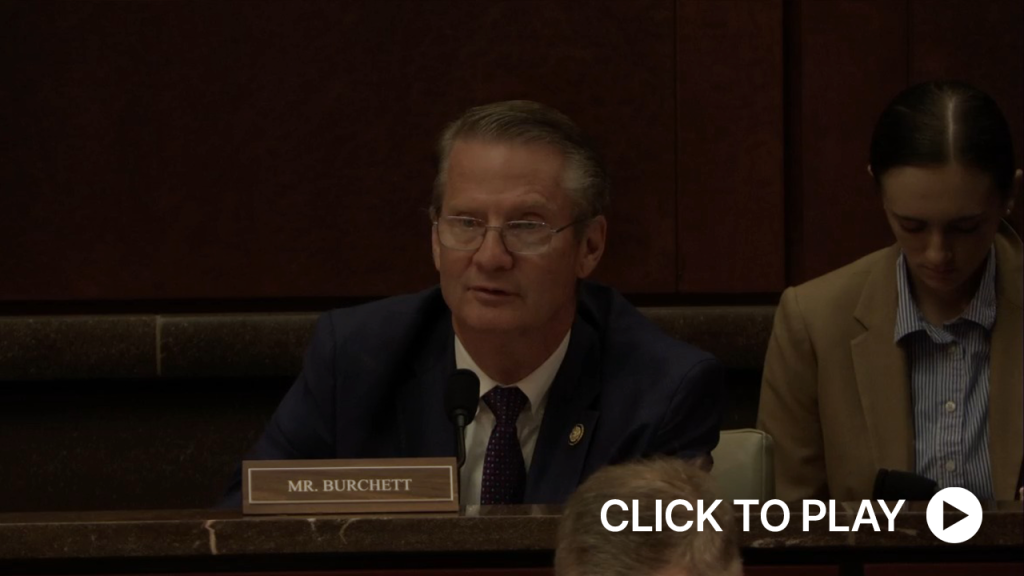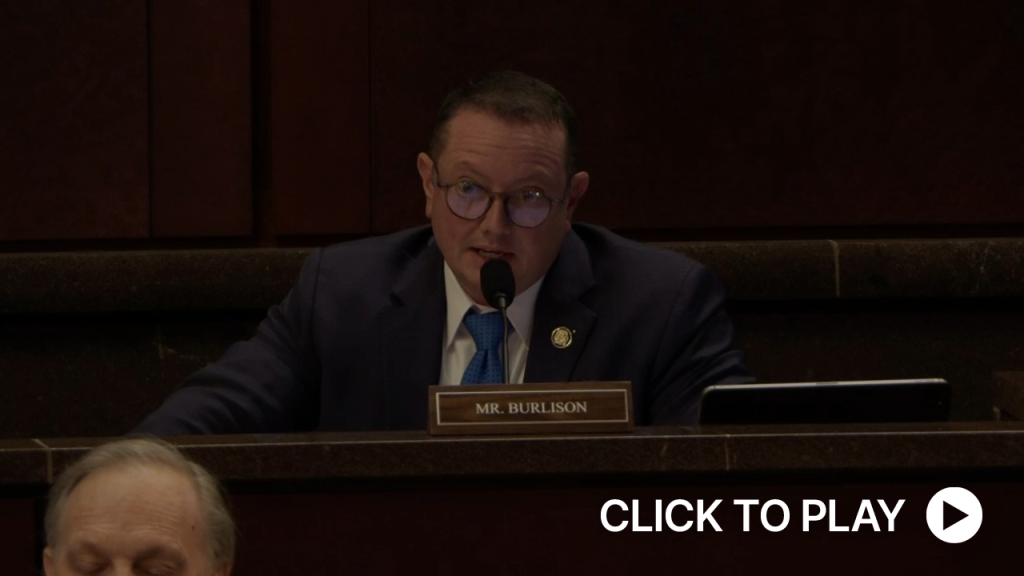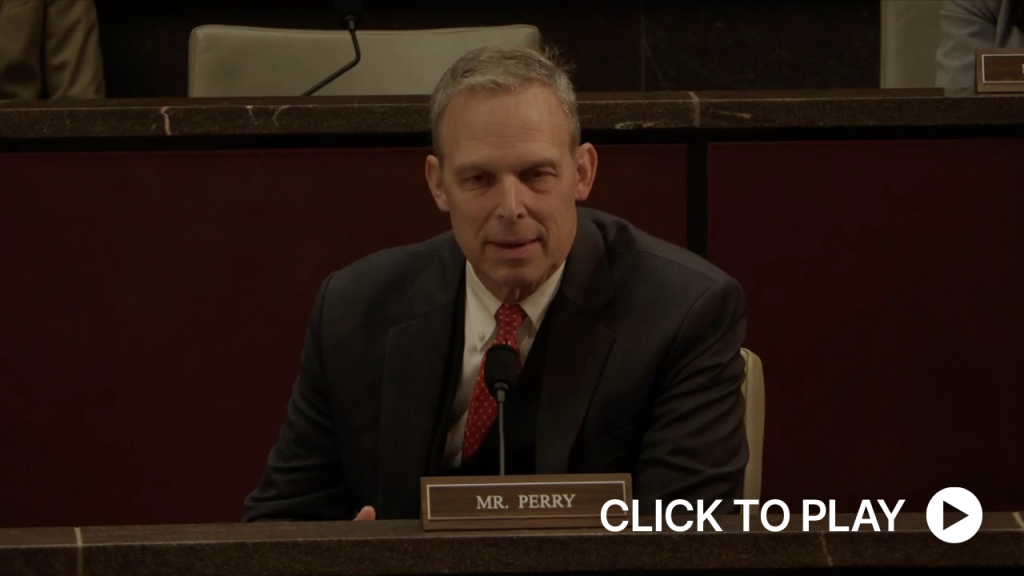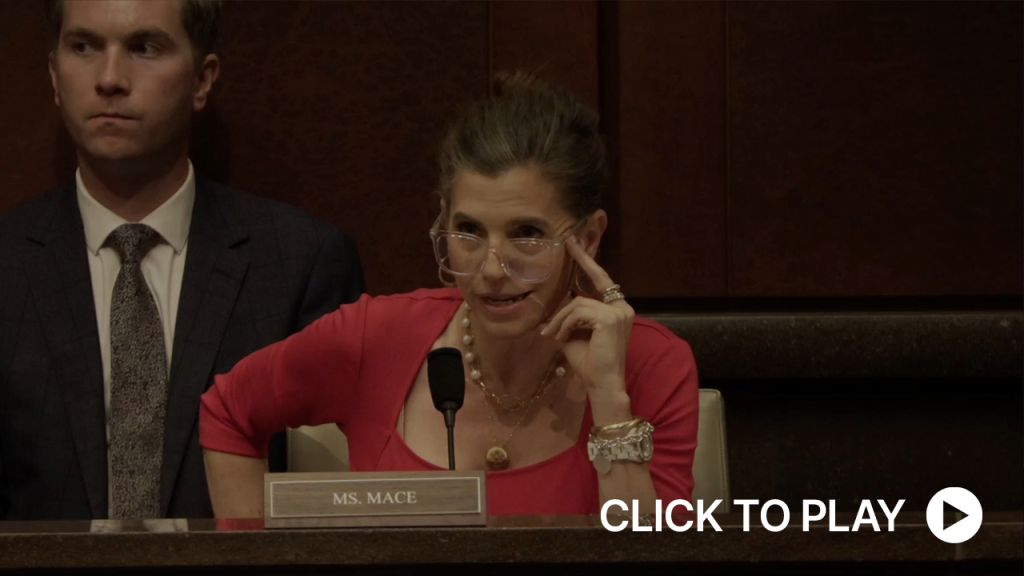Hearing Wrap Up: Government Must Be More Transparent About UAPs
WASHINGTON—The Task Force on the Declassification of Federal Secrets held a hearing today titled “Restoring Public Trust Through UAP Transparency and Whistleblower Protection.” During the hearing, members heard from witnesses on continued concerns regarding disclosure of unidentified anomalous phenomena (UAPs) and information held by federal agencies. Members examined transparency issues within the federal government’s All-Domain Anomaly Resolution Office (AARO) and the intelligence community. Members also analyzed ways Congress can better protect whistleblowers who come forward with information on UAPs.
Key Takeaways
The federal government has failed to provide adequate information to Americans on the existence and effectiveness of programs related to UAPs.
- UAP journalist George Knapp testified in his opening statement that “[You] know, the public has been told over and over since the late 40s, ‘there’s nothing to worry about here.’ These mysterious craft seen by millions of people in the skies, in the oceans, over the land, ‘are not real. They’re not a threat. The witnesses are wrong. They’re crackpots. Don’t believe it.’ That changed for me. What got me hooked is the paper trail. Documents that were squeezed out of the us government after the FOIA—Freedom of Information Act—became the law of the land. And those documents paint a much different picture than what the public, the press, and Congress have been told over many years. The documents from military and intelligence personnel behind closed doors admit that ‘these things are real. They’re not fictitious. They can fly in formation, they’re evasive, and they outperform any aircraft known to exist, including ours.’ The public, of course, as I said, has been told something much different.”
Americans want Congress to conduct oversight of programs related to UAPs and have more information on taxpayer funded programs and how much is being spent.
- Witness Chief Alexandro Wiggins testified in his opening statement that “I want to underscore three points for the Task Force and the Committee. Aviation and maritime safety: when crews and watchstanders observe objects that maneuver or accelerate in ways that does not match known profiles and do not, and do so near our ships and aircraft, that is first and foremost a safety issue. Standardized checklist and training should ensure we capture the best possible sensor data in real time, including air settings, slant range estimates, and bearing and range altitude snapshots, and immediate change of chain of custody for any recordings.”
- Withholding information undermines Americans’ confidence in the federal government.
Whistleblowers who provide details on spending information and policies and procedures regarding the classification and declassification of UAPs should be able to do so without retribution.
- U.S. Air Force veteran Jeffrey Nuccetelli testified in his opening statement that “Transparency is the foundation of truth. Without it, witnesses like us are dismissed. [P]rotect the witnesses. Many stay silent out of fear for their careers, reputations, and the safety of their families. Protect them and you will embolden others to join this cause. These phenomena challenge our deepest assumptions about reality, consciousness, and our place in the universe. Exploring them can unlock transformative breakthroughs in technology, biology, and human understanding.”
- Chief Wiggins testified that “Reporting without stigma protection without retribution. Sailors need to know that reporting UAP encounters will not harm their careers. Congress can help by reinforcing witness protection and by directing the relevant office to maintain confidential destigmatized channels for service members who step forward with data.”
- Mr. Knapp testified that “Men who have seen strange things and stepped forward to tell the world about it, uh, whistleblowers and witnesses who step up are routinely insulted, belittled, or worse. They risked their reputations, their careers, their clearances, their livelihoods, and sometimes, uh, much more than that, even their freedom. Uh, I know that one of the goals of the task force here is to figure out ways to protect whistleblowers and witnesses.”
- U.S. Air Force Veteran Dylan Borland testified in his opening statement that “Numerous individuals have come forward in various ways to reveal the truth of the UAP reality as patriots and defenders of our nation. Yet many feel discarded, isolated, hopeless, separated from the country they serve. Efforts to rectify this situation for all whistleblowers have been difficult in troubling.”
Member Highlights
Rep. Tim Burchett (R-Tenn.) inquired about what Congress can do to increase whistleblower protections.
Rep. Burchett: “How can Congress further increase whistleblower protections”
Mr. Knapp: “I think you got to unleash the dogs and go track down the money and where it goes, because a lot of this stuff has been moved out of government. As you know, Rep. Burchett, it’s been given to private contractors who stashed it away. They’ve had it for so long that there’s nobody left inside government or very few who know where it is.”
Rep. Burchett: “And they do that to keep us from FOIA, correct?”
Mr. Knapp: “Yeah, it’s to keep it from FOIA. And I think that the contractors fed the stuff for very, very long time, set their own standards about who is allowed to know what. And it’s a very small group that ever cracks that. I think, Representative Luna has been looking at the use of classifications to, to hide things. I’m not sure that even this committee getting, security clearances that should allow you to see this stuff would allow you to follow where it really goes.”
Rep. Eric Burlison (R-Mo.) asked about internal protocols and cross-agency documentation of UAPs and what could be done to improve transparency about credible sightings.
Rep. Burlison: “Chief Wiggins, in your view, what mechanisms, such as internal protocols, witness debriefings, or cross-agency documentation should be better established in order to ensure that such a credible sighting, like the one that you have given, are preserved and made available to oversight bodies like this?”
Chief Wiggins: “Thank you sir. As an active-duty Navy member, our mission is to carry out the ship’s mission or the command’s mission. And we, on a general basis, don’t have knowledge of what to do when we see things like this. We just don’t. We’re there to do our mission and do what’s a what’s told of us. Right. So I think, what would be important is, giving active-duty members, a clear way of being able to report things like this to, to where it gets to this point, and ensuring that we have standard level of understanding that there wouldn’t be any level of reprisal or anything happening, because, you know… I’ve been in the Navy for almost 24 years, but what about the sailors that have been in for two years that experienced things like this? They’re not going to have the knowledge, or they’ll probably be a little bit more fearful to speak up, being at that their career is just starting.”
Rep. Scott Perry (R-Pa.) asked about the U.S. government’s involvement in UAP investigations.
Rep. Perry: “But lenders would lend you to believe that the us government had no had nothing to do with whatever it is you saw, correct? They wouldn’t want it there because it would potentially interrupt the proceedings. At the time, was there an after action? Was there a discussion by your command? Was there an investigation? It’s pretty significant activities that you’re involved in. Was there an investigation that you know of?”
Mr. Nuccetelli: “We conducted investigations in real time. We document all the evidence. But as far as anything from higher up, I don’t know if there was an investigation, no information came down on what we should.”
Rep. Perry: “Were you ever interviewed at someone else’s request?”
…
Mr. Nuccetelli: “I don’t believe so.”
Rep. Perry: “Do you find that odd? If something happens, you’re around multi-million or maybe billion-dollar operations and launches of national security interests. Very sensitive. There’s an anomaly in the operation.”
Rep. Nancy Mace (R-S.C.) asked about the possibility of UAPs being government conspiracies.
Rep. Mace: “Do you think that any of this is a psyop by the US government?”
Mr. Knapp: “Entirely possible. I mean, our government and other governments have admitted that they’ve tried to use UFOs to cover secret projects, but I think they also do some reverse engineering of those claims. So, years after, people start seeing UFOs over Area 51, for example, they come up with a story. That was a week we planted that story. So, I read in a major newspaper just a couple of weeks ago, they planted this story in air force. Colonel. Went out into the desert, went to a bar and [they were given] some fake UFO photos. And that’s how the whole story about Area 51 started, which is preposterous.”
Click here to watch the hearing.
Legal Disclaimer:
EIN Presswire provides this news content "as is" without warranty of any kind. We do not accept any responsibility or liability for the accuracy, content, images, videos, licenses, completeness, legality, or reliability of the information contained in this article. If you have any complaints or copyright issues related to this article, kindly contact the author above.




